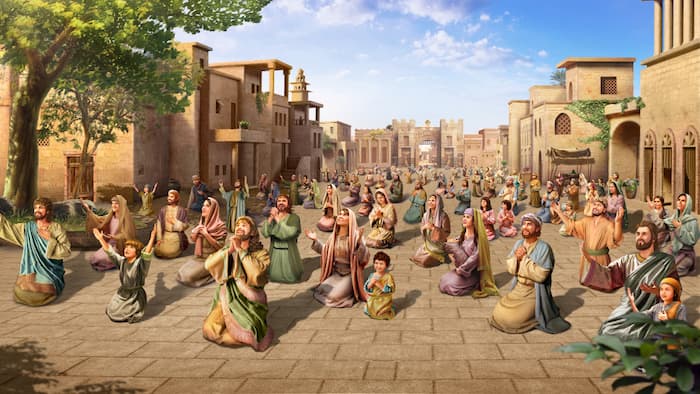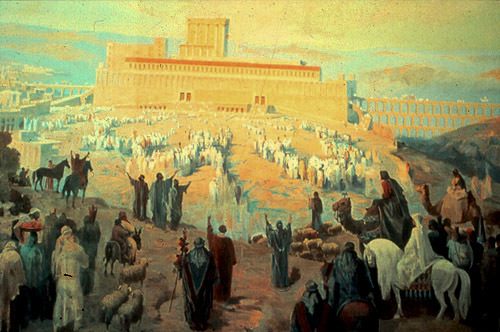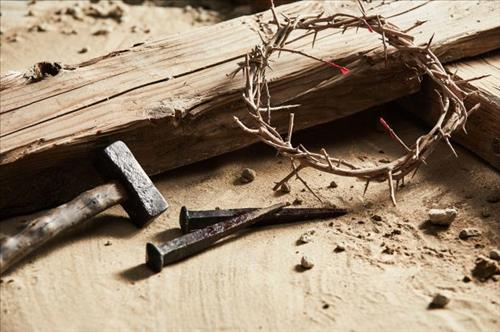Some people argue that the Ninevites were saved without a sacrifice but was forgiven by God on the basis of their genuine repentance, just as the following passage shows. They consider this as exegetical evidence that Jesus’ death wasn’t required for salvation considering that God can just overlook the transgressions of people, provided that they repent from their wicked ways and turn to God in faithfulness.
“…..Then God saw their actions—that they had turned from their evil ways—so God relented from the disaster He had threatened to do to them. And He did not do it.” – Jonah 3:10

Had these people simply bothered going through the previous chapter of Jonah, they would have immediately learnt that the reason why God could graciously accept the repentance of the people of Nineveh is because of the vicarious sacrifices that were being offered on their behalf in His holy Temple at Jerusalem.
“Jonah prayed to the Lord his God from inside the fish: I called to the Lord in my distress, and He answered me. I cried out for help in the belly of Sheol; You heard my voice. You threw me into the depths, into the heart of the seas, and the current overcame me. All Your breakers and Your billows swept over me. But I said: I have been banished from Your sight, yet I will look once more TOWARD YOUR HOLY TEMPLE. The waters engulfed me up to the neck; he watery depths overcame me; seaweed was wrapped around my head. I sank to the foundations of the mountains; the earth with its prison bars closed behind me forever! But You raised my life from the Pit, Lord my God! As my life was fading away, I remembered Yahweh. My prayer came to You, TO YOUR HOLY TEMPLE. Those who cling to worthless idols forsake faithful love. But with the voice of thanksgiving I WILL SACRIFICE TO YOU; I will fulfill what I have vowed. Salvation is from the Lord! Then the Lord commanded the fish, and it vomited Jonah onto dry land.” – Jonah 2:1-10
Jonah mentions turning towards God’s Temple, and of his prayer coming to God there, with the pledge that if God delivers him, he will offer sacrifices with a grateful heart.
Some would further argue that the Temple were only for sacrifices made on behalf of the Israelites! Nevertheless, the prophet Isaiah himself described God’s Temple as a house of prayer for all nations where even the Gentiles could come to offer sacrifices to Yahweh their God.
“…these I will bring to my holy mountain, and make them joyful in MY HOUSE OF PRAYER; THEIR BURNT OFFERINGS and THEIR SACRIFICES will be accepted on my altar; FOR MY HOUSE SHALL BE CALLED A HOUSE OF PRAYER FOR ALL PEOPLES.’ The Lord God, who gathers the outcasts of Israel, declares, I will gather yet others to him besides those already gathered.’” – Isaiah 56:7-8

This and other verses are the reason why God could certainly accept the repentance of the people of Nineveh is because God had actually ordained vicarious sacrifices be made in the Temple for the salvation of the Gentiles, so that the sins of anyone of them that genuinely repented and turned their direction to God’s house in Jerusalem, as a sign that they had actually come to believe in the God of Israel, would be totally forgiven.
Thus, this in turn ends up being a perfect picture of Christ’s substitutionary death for all men and women, not simply the Israelites, due to the fact that it delighted God to save the world through the vicarious sacrifice of His beloved Son.
“Truly, truly, I say to you, he who believes has eternal life. I am the bread of life. Your fathers ate the manna in the wilderness, and they died. This is the bread which comes down from heaven, that a man may eat of it and not die. I am the living bread which came down from heaven; if any one eats of this bread, he will live for ever; and the bread which I shall give FOR THE LIFE OF THE WORLD is my flesh.” – John 6:47-51

What makes this even more ironic is that the men who tossed Jonah overboard are said to have actually offered a sacrifice to Yahweh in order to appease Him, demonstrating that even the Gentiles recognized the important role that vicarious offerings played in obtaining forgiveness from sins!
“So they picked up Jonah, threw him into the sea, and the sea stopped its raging. Then the men feared the LORD greatly, and they offered a sacrifice to the LORD and made vows.” – Jonah 1:15-16